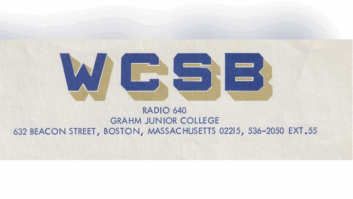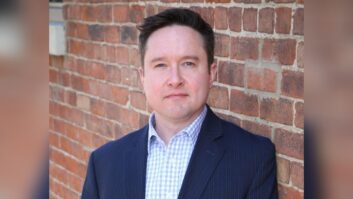Don’t blame the engineering consultant when you can’t build the transmitter site on time. The licensee or permittee is the responsible party.
That’s the overriding message from the FCC this week in a case involving a tribal college seeking more time to build its facility.
While the FCC denied a request to waive its three-year build rule from Navajo Technical College, the agency noted that it’s recently revised its rules to provide for so-called tribal allotments of commercial radio frequencies. Though the rules haven’t taken effect, the revision would allow the school to submit such a proposal now, according to the agency.
The college has a permit to build an NCE FM station in Crownpoint, N.M. It says it relied on bad advice from an engineering consultant to in 2007 when it specified a transmitter site in a remote mountain location supplied by solar power only — no electricity.
NTC did win a three-year construction permit that was to expire in August, 2011.
The college received a $405,196 Public Telecommunications Facilities Program grant to be used towards construction costs. The college believed — wrongly — its construction funding ended at the same time as the PTFP grant expired, in March 2012. The college found out its error when it fired the original engineering consultant and hired a new one in June 2011, according to the FCC. That’s also when the college sought a waiver of the three-year CP. The college argued that its understanding was reasonable because it would be inconsistent for one federal agency [NTIA] to award funding for a project past the expiration set by another, in this case the FCC.
In August 2011, the college supplied more information to the FCC. That’s when the agency says it first learned the college couldn’t build at its authorized transmitter site. NTC says its original engineering consultant “experienced unforeseen difficulties in extending power to the site.”
The new consultant began looking for alternative transmitter sites and the college applied for additional 30-day periods to complete engineering studies of alternative sites.
In October 2011, the college determined the only viable site replacement was on the campus. However, then the new station wouldn’t serve as many potential listeners — some 13,577 people — roughly 3,321 fewer than originally hoped. So the college also asked the commission to okay a service area downgrade.
In general, the commission said in its decision, applicants face a high burden of proof to show they warrant such waivers.
The Media Bureau said the kind of listener service downgrade sought by the college is rarely approved; in this case, it’s just too much, according to the agency.
As far as moving the transmitter site, the applicant must show the site loss was not foreseeable and beyond its control and that a replacement site would maintain service to as much of the original unserved or underserved areas as possible. The applicant also must show that the new site would provide service to areas not included in the original application so the new population estimate would exceed that lost.
NTC argued that the power company’s inability to bring electricity due to rugged terrain to the site was beyond its control and also limits potential replacement sites. Ancient ruins near the original transmitter site also limited the options and a nearby mountain range also affected signal propagation, which is why the college chose its campus as the replacement site. To mitigate lost service from the move, the college proposed adding 50 feet to its existing 149-foot tower at the new site. It could also build a taller tower, but not within the time constraints, it said.
NTC contended that reaching the lost area from the new site would require that it build a new tower approximately 1,000 feet taller than the one currently in place. NTC argues that, even if it could obtain local approvals, the build couldn’t be accomplished before the PTFP grant expires. The college pointed out that once that PTFP grant expires, that money is “lost forever” even if it does apply for the desired facility in the next NCE application window.
Though the PTFP program has ended, as we’ve reported, NTIA is still honoring existing grants.
The commission said in its decision that it’s committed to helping tribal nations establish radio stations, but that the agency must also maintain the integrity of its rules to promote radio licensing for all tribal nations.
The FCC said the college has not shown the loss of the original transmitter site was beyond its control or that the technical problems of building a radio transmission site were unforeseeable. “Rather, the issue of bringing power to a remote location is both foreseeable and a matter which any diligent party would investigate prior to the filing of a construction permit application,” stated the agency, which also said NTC was vague about efforts to coordinate with the power company to determine the feasibility of its CP application.
While NTC admits it could build a taller tower to replace the lost potential service area, it dismissed that option due to time constraints. The FCC called this “impediment” the sole consequence of NTC’s inattentiveness and lack of diligence in taking steps to build the station in a timely way.
“While NTC faults its original consultant, the commission has always held the licensee/permittee responsible for the actions and omissions of its employees and independent contractors because the permittee/licensee must retain ultimate control over any construction tasks it chooses to delegate to others,” stated the Media Bureau in its decision.
The FCC said a waiver of the downgrade restriction is unwarranted and would undermine its comparative licensing procedures. The dismissal of the downgrade waiver makes the CP extension application moot.
However, the agency said it remains available to consult with NTC and other tribal applicants on any questions that they may have at any stage of a radio application and licensing processes.
Noting that the commission revised its tribal allotment allocation process, the agency said such an applicant could submit a proposal, even though the rule changes have not taken effect.







